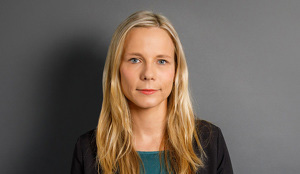New legislation on business pension schemes in Germany
With effect from 1 January 2018, German adopted new legislation on business pension schemes (Law to strengthen business pensions, Betriebsrentenstärkungsgesetz) to encourage small and mid-sized companies to implement business pension schemes. The most prominent change under this new legislation is the abolition of any joint liability for companies in relation to defined contribution pension schemes.
Previous provisions provided for mandatory subsidiary liability for employers, even in respect of defined contribution pension schemes, making business pensions a rather unattractive company benefit across Germany, unlike many other jurisdictions.
What are the main changes?
1. CONTRIBUTION COMMITMENT WITHOUT ADDITIONAL LIABILTY
The new law to strengthen pension schemes provides for the possibility of a pure defined contribution obligation, meaning that the employer´s obligation is limited to pay contributions to the competent pension institution, without any liability in relation to the future pension payments. However, such contribution commitments cannot be agreed on an individual basis, but need to be agreed collectively, either with the works council within a works agreement or with a trade union in the form of a collective bargaining agreement.
Additionally, insolvency coverage of the pension insurance association is also no longer a requirement for contribution obligations. Consequently the employees themselves bear the investment risk. Employees’ claims for (future) pension payments can only be raised against the implementing pension fund. The employers’ obligation to pay benefits and liability ends with the termination of the respective employee’s employment relationship, which also simplifies administration considerably. In case of a change of employer, the employee is entitled to transfer the accrued pension capital into the pension fund of the new employer or to continue the scheme with their own contributions.
2. OPT-OUT SYSTEMS
To achieve broader coverage of employees under business pension schemes, the new law offers an opt-out option in relation to deferred compensation, where an amount of the employees´ gross salary is retained and contributed into the company pension scheme (see below). Previously, even under collective business pension schemes, employees had a right to decide on their involvement in such scheme, with non-action resulting in non-participation. Under the new rules, collective agreements may provide for an automatic application of the scheme to all employees under its scope of application, with employees needing to take active steps to opt-out. Such opt-out can only be declared within one month following implementation of the scheme.
3. FURTHER CHANGES
A. EMPLOYER CONTRIBUTION FOR DEFFERED COMPENSATION
The new law provides for a statutory employers’ contribution to top-up business pensions in the form of deferred compensation. The employers’ statutory top-up payment amounts to 15% of the deferred remuneration. Legally, this additional employer-funded contribution is calculated to compensate the reduction of the employer’s proportion of the public social security contributions due to the deferred compensation scheme.
B. INCREASED TAX FREE ALLOWANCES
The new rules also provide a tax benefit as an incentive for higher pension contributions for business pension schemes. Previously, employees were limited to a maximum contribution of 4% of the threshold of the general social security system, capped at a total f EUR 1,800, as a tax free benefit. The new rules have doubled this to a maximum of 8%, which is currently equivalent to EUR 6,240 per year (in 2018). Not only is this a tax incentive for higher contributions but it will also ultimately simplify the wage tax withholding procedure.
C. FUNDING AMOUNT FOR EMPLOYEES WITH LOW WAGES
To support the company pension scheme, the legislator has further established a funding contribution for employees, earning a maximum of EUR 2,000 gross per month. In cases where the employer pays at least EUR 240.00 per annum (in addition to the contractually agreed salary) to a pension fund, pension pool or for direct insurance, he is entitled to a funding contribution, amounting to 30% of the contribution paid to the employee's company pension scheme. This additional employer's contribution is free of tax, up to a limit of EUR 480.00 per calendar year.



